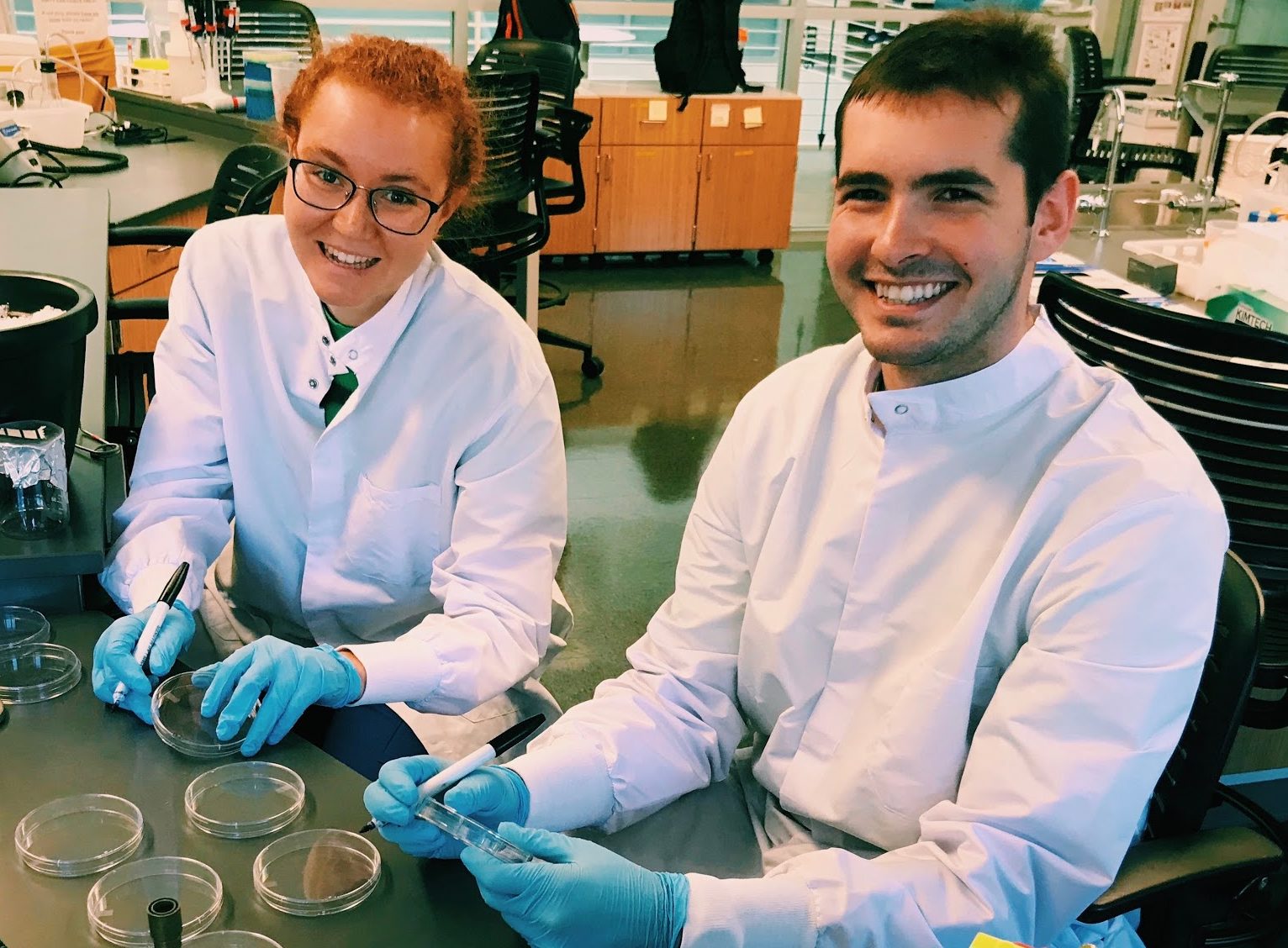In October, a team of five undergraduates earned a silver medal at the annual International Genetically Engineered Machine (iGEM) competition for their “Cerberus System,” which uses single-chain antibodies to detect small molecules and proteins and CRISPR technology to detect nucleic acids.
The iGEM competition recognizes innovations in solving real-world problems using synthetic biology. According to the iGEM website, high school, undergraduate and graduate students across the world assemble teams each summer to “design, build, test, and measure a system of their own design using interchangeable biological parts and standard molecular biology techniques.” Their efforts culminate in a “Giant Jamboree” — held annually in Boston — where teams present their research to experts in the field along with other iGEM teams.
This year’s Stanford team — the first comprised solely of Stanford students — consisted of Isaac Justice ’19, Eleanor Glockner ’19, Luis Govea ’20, Eva Frankel ’20 and Conrad Safranek ’21. Assistant professor of bioengineering Stanley Qi, former bioengineering department member Kara Rogers and Ph.D. students Rolando Perez and Josh Tycko assisted in mentoring the team.
In previous years, Stanford students competed in the iGEM competition through a joint initiative with Brown University and the National Aeronautics and Space Administration (NASA).
This year, the team’s initial goal was to develop a real-time diagnostic tool to help cannabis farmers identify pathogens — particularly a specific toxic fungus called aspergillus flavus — growing on their crops. The fungus can spread widely and infect crops, ultimately harming cannabis consumers.
“When we realized that our approach could be generalized to any molecule, protein or nucleic acid, we decided to shift the purpose of our project and create a new synthetic biology system for detection of molecules through CRISPR technologies,” Safranek said.
CRISPR, short for clustered regularly interspaced short palindromic repeats, can be used by the scissor-like protein Cas9 — specifically in CRISPR-Cas9 technology — as a DNA guide allows DNA to be cut in very precise locations, making it a tool for genome editing.
The Stanford team’s system was named the “Cerberus System” — after the three-headed dog in Greek mythology — due to its use of CRISPR technology to detect three classes of materials: nucleic acids, proteins and small molecules.
The system uses single-chain antibodies and dCas9 to detect the three classes. The dCas9 protein is a deactivated version of the enzyme Cas9 that binds to DNA and, instead of cutting it as per the normal Cas9 function for gene-editing, binds and holds on to the DNA strand. The team designed a system where two dCas9s simultaneously bind different neighboring sections of the target DNA, and in doing so bring together a larger protein complex and initiates transcription of red fluorescent protein. This system can quantitatively detect any molecule and glow accordingly, making the detection highly specific.
Development of the Cerberus System was led by the undergraduates on the team. According to its website, the iGEM competition is a unique research experience because undergraduates lead the project and have autonomy over its direction, unlike research internships in which the intern’s progress and decisions may be determined by someone else.
“I was excited to join iGEM so that I could translate lab skills to more self-directed research and challenge myself to take on more of a leadership role in the lab,” Justice said. “Having to come up with a research topic and project plan completely from scratch is both deeply rewarding and deeply challenging.”
Contact Yash Pershad at ypershad ‘at’ stanford.edu.
